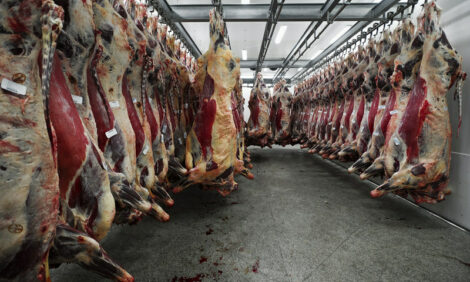



NADIS Forecast Heavy Fluke Burden This Spring
UK - The National Animal Disease Information Service NADIS is predicting that this spring, pasture could be very heavily contaminated with over-wintered infectious stages of liver fluke (Fasciola hepatica).This puts grazing animals at higher than normal risk of disease in March/April and perhaps even more importantly at higher risk of chronic disease over the following months.
Therefore an early and effective treatment control plan is particularly important this year to avoid serious health and production losses from this disease.
Treatment of flocks now, with Flukiver® (closantel) will kill adult fluke, immature fluke from five weeks after ingestion and delay egg shedding by infected sheep for up to 13 weeks. This will prevent further contamination of the pasture and greatly reduce the incidence of chronic disease later in the year.
Infectious liver fluke will be in high numbers on pastures this spring because of the mild, wet winter that favoured their survival. This has been exacerbated by particularly high numbers of immature flukes that thrived during 2012, again due to ideal weather conditions for the parasite and their intermediate host, molluscs, such as snails.
Adult sheep with chronic infections, of which there may be many after the bumper year fluke had in 2012, will continue to shed eggs onto pasture and as more sheep become infected, pasture contamination will increase enormously over spring and summer. Treatment of potentially infected stock in the spring with a drug such as Fluikver® is recommended to reduce further egg production and shedding, thereby reducing infection rates of other sheep.
This in turn will minimize the extent of liver damage sustained by individuals within the flock as well as preventing large numbers of chronically infected animals over wintering into next year. This year it would also be prudent to re-treat grazing stock in five to six weeks, as they are likely to pick up new infections from the pasture. Treatment intervals of 10 to 12 weeks with Flukiver® are usually recommended, however in severe fluke seasons, as predicted for 2013, more frequent dosing may be necessary.
With a particularly abundant liver fluke season ahead, now is the time to act. It is strongly recommended, in these higher risk circumstances, that advice is sought from Vets or Animal Health Advisors to plan a cost effective treatment and prevention dosing regimen for individual farms. As the old adage goes with birds and worms, it’s the early treatment plan that catches the flukes!
TheCattleSite News Desk


